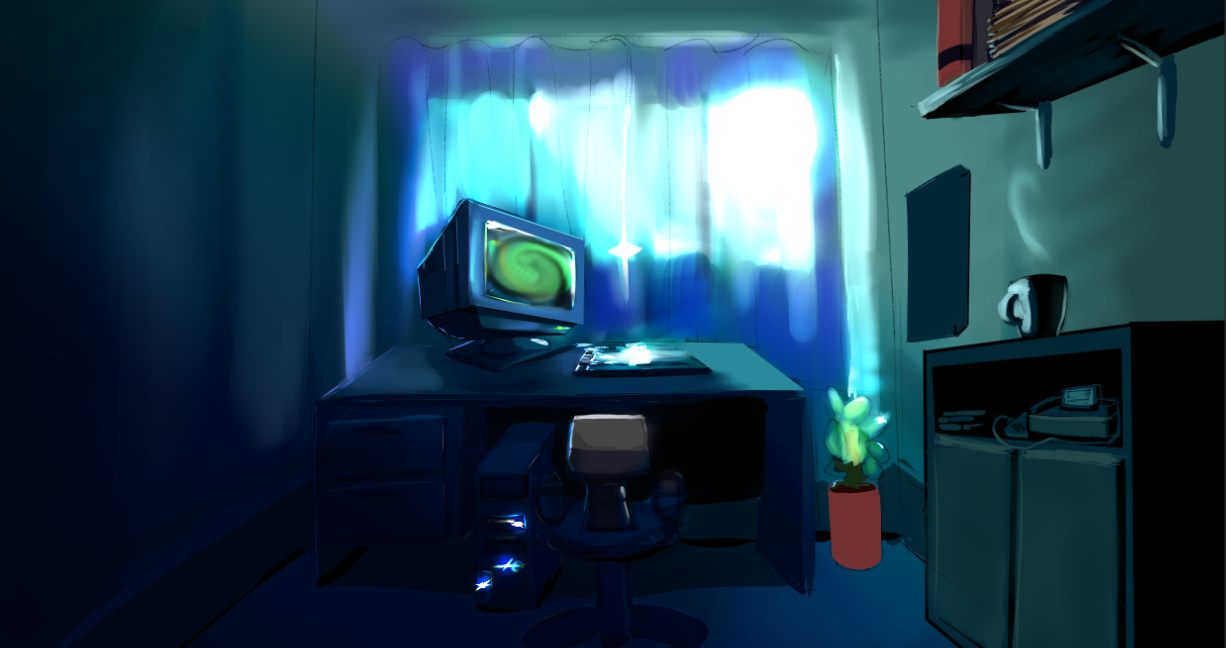First, a notice
I've made the decision today to start writing more seriously in my blogs; this will probably result in a slightly higher chance of a programming blog, with potential tutorials and examples being uploaded.Speaking of which, an Article/Column/Tutorial media type might be a nice addition to V4…The actual blogWell, I've already started thinking about what I'm going to do, and specifically: What I'm doing it in. This is going to be a lot of work, because if I release anything this time, it's got to be complete.At the moment my design is focusing on the base system used, and currently I'm considering employing a DnD inspired backend, with a jRPG interface; One thing that I feel is important is to give the player a lot of control over their character and the direction of the 'story' (Roleplay). Of course, three months to make a non-linear awesome RPG with DnD based calculations, character classes, multi-classing, jRPG art, and music to boot requires massive amounts of insanity, or a team of talented programmers/artists/musicians to pull off.Especially considering that I refuse to do this in Game Maker. (C# or C++. Java at a push, but the language isn't what matters at this point).Fortunately, I have large reserves of insanity, so no problems there.Now before anybody thinks I'm just pulling an abstract design-doc for this, with no clear idea of what I want to do…Mini design doc - Revision A and Abridged from 20KB or so
Primary GoalCreate an RPG that utilizes a Dungeons and Dragons based back-end (for calculations, spells, leveling, classes, etc) while providing a more console-styled presentation visually (Final Fantasy IV, Dragon Warrior. Keep it simple).The game should be as non-linear as possible.Circumventing the linear game factorInstead of basing the game around the story, provide a world that contains the story, and provide pointers to the story in places.The player chooses whether or not to complete the main quest. This implies that other quests exist.Quests can take on a variety of forms, ranging from simple 'Get me some <item>' to 'Take care of our resident Dragon problem'. These will be brokered by various NPC's in the game (Which implies NPC's, and a quest management system).Multiple activities should be provided to the player, with varying degrees of reward. Naturally, questing is one of these; 'hunting' could be another alternative (Receive craftable items from monsters? (Implies crafting, alchemy, spellcraft)). In addition to the main-quest, character-improving quests should exist too (One for each class, allowing progression to the master-class for that class). No random generationI don't want to risk this again. This time I'm going to carefully create my own areas, and items should be explicitly designed, but with the usual fun RPG stats tacked on (Cursed, Blessed, Evil, etc).Party based gameplayI definitely want to include the possibility of multiple part-members for this game, but I don't want to force companions on the player (Allow the player to decide against accepting assistance).For this, a Dragon Warrior 4 system will work very well, where you can hire party-members from the local Pub. A simple in-the-background database can contain all the possible hires, their locations (Randomized, possibly, to create the illusion of movement between towns), and their standing towards the player (Implies a reputation and possible 'Bias' towards either Good or Evil. This prevents a Paladin from siding with an Evil Wizard, for instance).Multi-classingAllow the player to choose a class to improve each time they level. Levelling multiple classes might create a more adaptable character, but at the same time won't allow the player to reach the higher class perks for specific classes. CutI cut it off here, so as not to spoil the whole thing right off the bat, but I think you can see the general direction here.

It's totally not obvious which people actually play/have played D&D.
from what I've seen so far, most resolutions don't last too long.